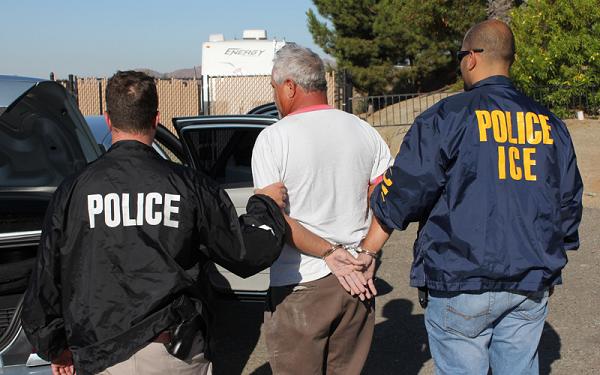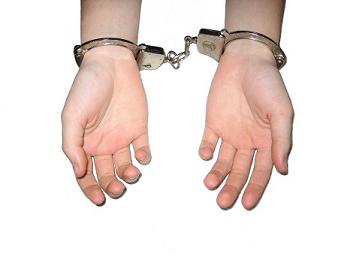Table of Contents
There is now widespread use of criminal records in the United States. Criminal records help to find out more about the life of individuals. Some people challenge the use of criminal records claiming that there are a lot of inaccuracies and they can hold people back. Whether this is true or not will not slow down the viewing of criminal records to make judgments about people.
Over the last few decades, the number of criminal records available has grown significantly. The scope of criminal records in the United States has also changed and now they are a lot more available than they were in the past.
The Difference between Police Records and Criminal Records
A police record is an all embracing term for the records that law enforcement agencies keep and review. Police records consist of a lot more than just criminal records. The police create and review arrest records for example. An arrest record does not always lead to the creation of a criminal record.

Then there are incident reports such as traffic accidents. It is not usual for a traffic accident report to lead to a criminal record. These reports will help insurance companies settle auto insurance claims. Minor theft reports rarely lead to criminal records either but they are still important to create and keep.
What is a Criminal Record?
Criminal records provide details of actual criminal activity. When convicted of crimes the individuals concerned will have a criminal record. Local authorities, states and federal authorities keep criminal records and use them in different ways.
Law enforcement agencies use criminal records to identify possible subjects when they are investigating crimes. A court will look at a person’s criminal record history when they are determining sentences for crimes. If someone is a repeat offender they will end up spending a longer time in jail.
How have Criminal Records changed over the years?
A long time ago local police stations created and kept criminal records. Local law enforcement agents handwrote everything. The problem in those days was that if a person moved to another location there was no easy way of knowing if they had a criminal record or not.
With technological advances, criminal records started to be stored in computer databases. Over time these databases became larger and larger and more accessible to police and other law enforcement agents across the country. Now any law enforcement officer can rapidly see the conviction history of a suspect wherever they are in the country.
What is in a Criminal Record?

If you look at a criminal record what can you expect to find? Here is what a typical criminal record may contain:
- The name of the convicted person
- Their date of birth
- Any aliases used by the individual
- A description of their physical characteristics
- Their current address
- Details of outstanding arrest warrants
- Fingerprint information
- A photograph of the individual
The government owns all criminal records. The law enforcement agency or court that created the criminal record has the responsibility to manage them properly. You are not going to have a criminal record for most traffic offenses. There are some exceptions though.
How do People get rid of Criminal Records?
You may have heard that it is possible for people with criminal records to get rid of them. In some cases this is true. The correct term for this is having a criminal record expunged. When a person has a criminal record expunged they can say legally that they have no criminal record.
Expunging a criminal record just renders it inactive. This means that law enforcement agencies can still retrieve the information if they need to. The rules about expunging criminal records differ between states. In some states, the expunging of a criminal record is not possible at all.
Usually, a criminal record is eligible for expunging if it is for a minor offense and the only offense. If the state permits expunging then a process will require following and the courts become involved. A judge finally decides after considering:
- What type of crime
- Did a conviction take place or was it just an arrest?
- The amount of time that has passed
- Are there any other convictions?
- If sentenced was the time served?
- Any arrests or convictions afterwards
Sex Offender Records
When someone commits a sexual offense they are entered into a register as a sex offender. The register is for adults and juveniles. There are many different types of sex offenses such as sexual assault, rape and touching inappropriately. All sex offenses lead to criminal records.
A person that has committed a sexual offense must register with the state. Each state has a sex offender registry that provides details of offenders and their crimes. If the details of a person change (such as their address) the individual have to report this and the registry entry changed.
The reason for state held and national sex offender registers is those sex offenders are very likely to repeat their crimes. It is very important that local authorities track the movements of sex offenders. Also, people living in the same area have the right to know those sex offenders live there too.
Crime Statistics for the United States
Although law enforcement agencies are doing all that they can to solve and prevent crimes the reality is that they still occur often. Data produced in 2010 showed that assaults take place every 40 seconds in the United States.
Even worse than this is that every hour there are approximately two people murdered. In the same hour, ten rapes occur. Minor crimes occur frequently as well. House and business burglaries occur every 15 seconds in the US and at least one car is stolen every minute. Burglary is the most common crime along with larceny theft and property crimes.
How can you check Criminal Records?
There is a hard way and an easy way to check criminal records of individuals in the United States. The hard way is to make a request via a state or federal website. Another hard way is to go to a county clerk’s office or a local sheriff’s office.
The easy way to find criminal record information in the United States is to use an online background checking service. A good service will find the information that you need quickly and easily.
Criminal Records by State
- Alabama Criminal Records
- Alaska Criminal Records
- Arizona Criminal Records
- Arkansas Criminal Records
- California Criminal Records
- Colorado Criminal Records
- Connecticut Criminal Records
- Delaware Criminal Records
- District of Columbia Criminal Records
- Florida Criminal Records
- Georgia Criminal Records
- Hawaii Criminal Records
- Idaho Criminal Records
- Illinois Criminal Records
- Indiana Criminal Records
- Iowa Criminal Records
- Kansas Criminal Records
- Kentucky Criminal Records
- Louisiana Criminal Records
- Maine Criminal Records
- Maryland Criminal Records
- Massachusetts Criminal Records
- Michigan Criminal Records
- Minnesota Criminal Records
- Mississippi Criminal Records
- Missouri Criminal Records
- Montana Criminal Records
- Nebraska Criminal Records
- Nevada Criminal Records
- New Hampshire Criminal Records
- New Jersey Criminal Records
- New Mexico Criminal Records
- New York Criminal Records
- North Carolina Criminal Records
- North Dakota Criminal Records
- Ohio Criminal Records
- Oklahoma Criminal Records
- Oregon Criminal Records
- Pennsylvania Criminal Records
- Rhode Island Criminal Records
- South Carolina Criminal Records
- South Dakota Criminal Records
- Tennessee Criminal Records
- Texas Criminal Records
- Utah Criminal Records
- Vermont Criminal Records
- Virginia Criminal Records
- Washington Criminal Records
- West Virginia Criminal Records
- Wisconsin Criminal Records
- Wyoming Criminal Records